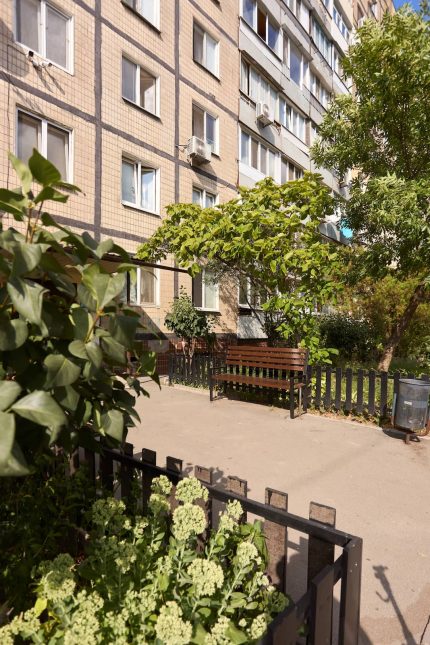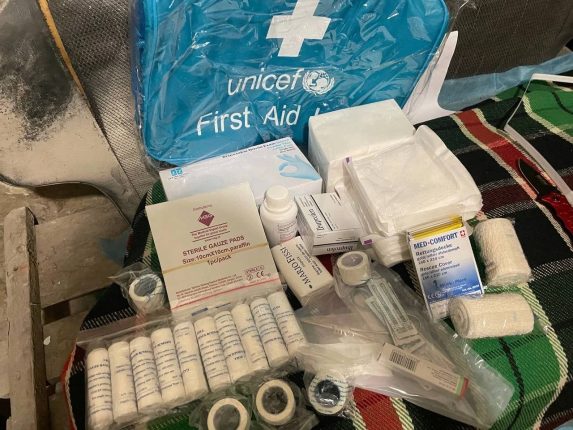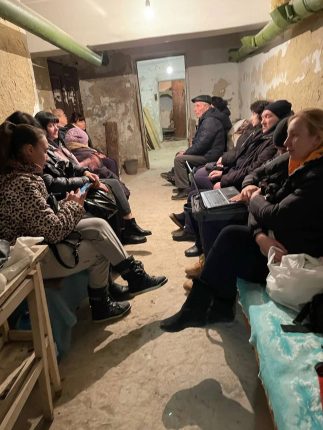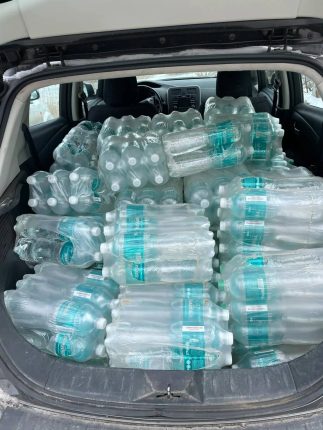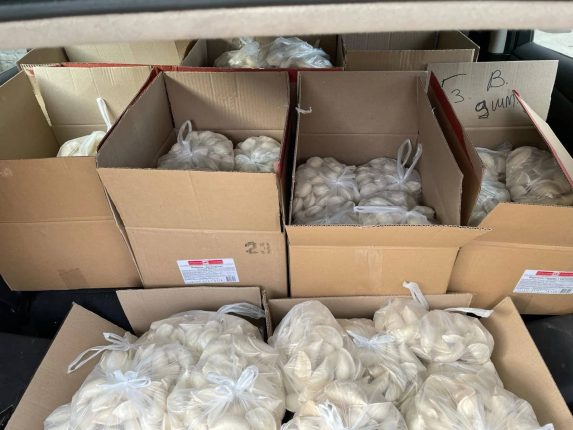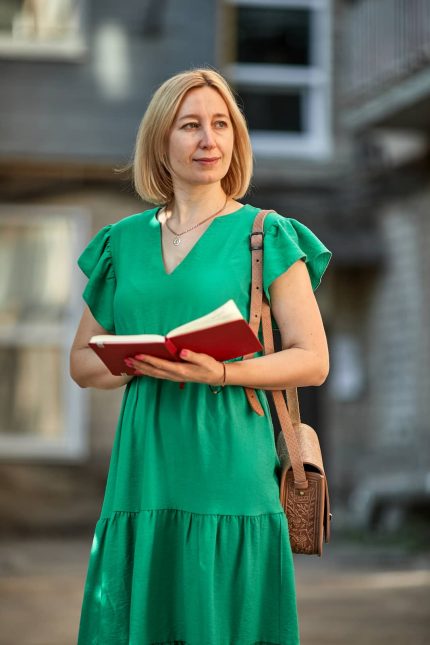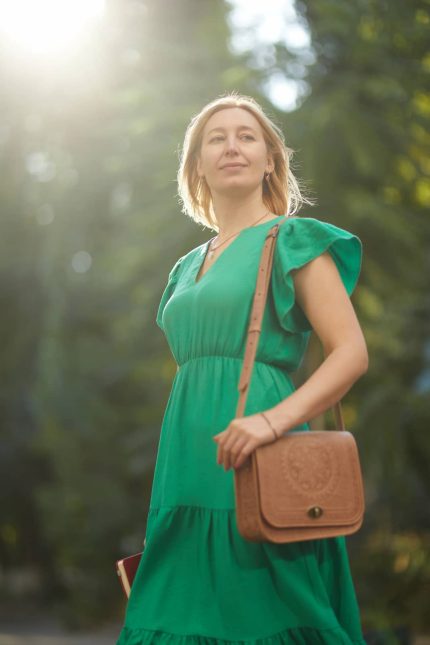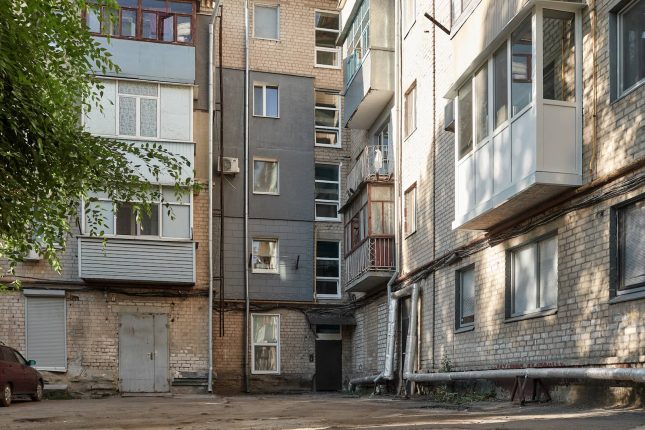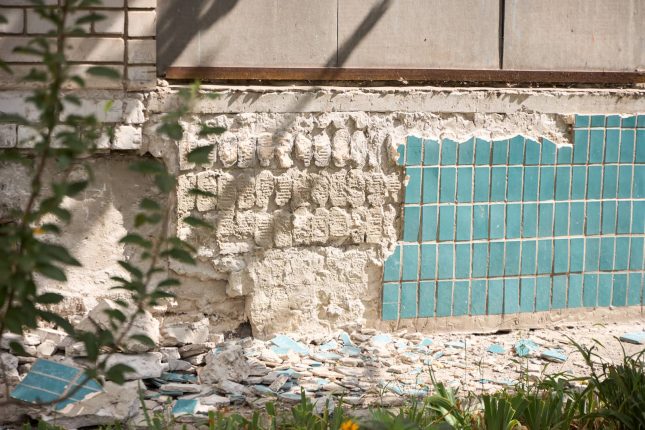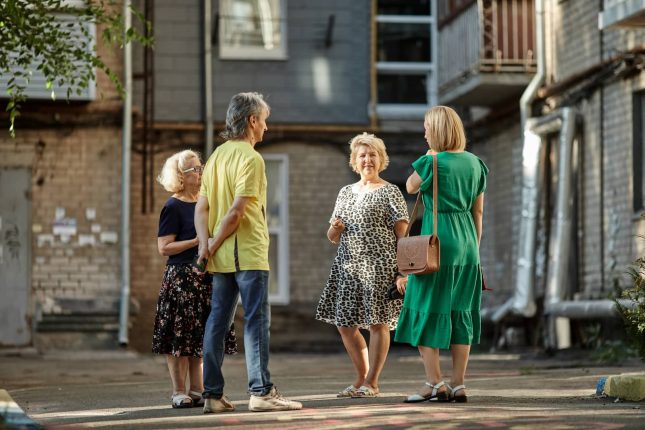
The Women Helping to Rebuild Ukraine
11/10/2024
By Iulia Pushko, Sunita Rappai, Roman Matiukhin and Natalia Ilina
For Tetiana Shyk, as for millions of internally displaced Ukrainians forced to leave their homes because of Russia’s invasion, starting over in a new city has not been easy.
In her hometown of Bakhmut in eastern Ukraine, the softly-spoken Tetiana managed nine homeowner associations (HOAs)—loose collectives of residents who band together to maintain and improve their buildings and communal spaces, often through funding from local and regional governments.
By summer 2022, however, Bakhmut had become a battleground. Tetiana and her family were forced to evacuate to Pavlohrad, an industrial hub near the central city of Dnipro.
For months, Tetiana and her husband travelled back and forth to Bakhmut—a perilous four-hour car journey—to deliver aid and help her former co-residents.
When the couple’s car took a direct hit, however, they realized they had to stay put. For almost a year, Tetiana dreamed of returning to her hometown but by May 2023, it had been entirely destroyed.
In the end, it was a training program developed with IFC’s help—the School of Women’s Leadership—that gave her the confidence and determination to adapt to the new environment.
The school was set up to empower women leaders—heads of homeowner associations and NGO partners—in implementing IFC’s recommendations for resettling and integrating internally displaced persons (IDPs) into new communities. Additionally, it focuses on adapting housing management practices to the unique challenges posed by martial law, ensuring leaders are equipped to foster resilience and support within their communities.
“It made me realize that women like me in multifamily building management are leaders,” says Tetiana. “I thought: I am a woman and in management – what am I waiting for?”
Not long after, with the backing of her co-residents, she set up a new homeowners’ association for her building in Pavlohrad, where she is now once again advocating for repairs and improvements.
“This building sheltered my family when we left Bakhmut and I feel a strong connection with it,” she says. “The longer I stay, the dearer it becomes. We had instances of no light and clogged sewers. As an HOA chair, I have a sharp eye and I’m fond of bringing things to order. With an HOA, we can do a lot of good things.” nd travelled back and forth to Bakhmut—a perilous four-hour car journey—to deliver aid and help her former co-residents.
Stories
-
Katarina Mathernova: If Ukraine had a human face and a human spirit, it would be 10-year-old Roman Oleksiv
-
A regional mission to drive social entrepreneurship: the story of Ksenia Kosukha
-
EU restores safe water supply for 100,000 Ukrainians affected by war
-
Promoting IT during the war: Lviv IT cluster and how EU4Digital helps
-
Frontline digitalisation: Kharkiv IT Cluster collaborations
-
How EU4Youth is driving opportunity and success among young Ukrainians
